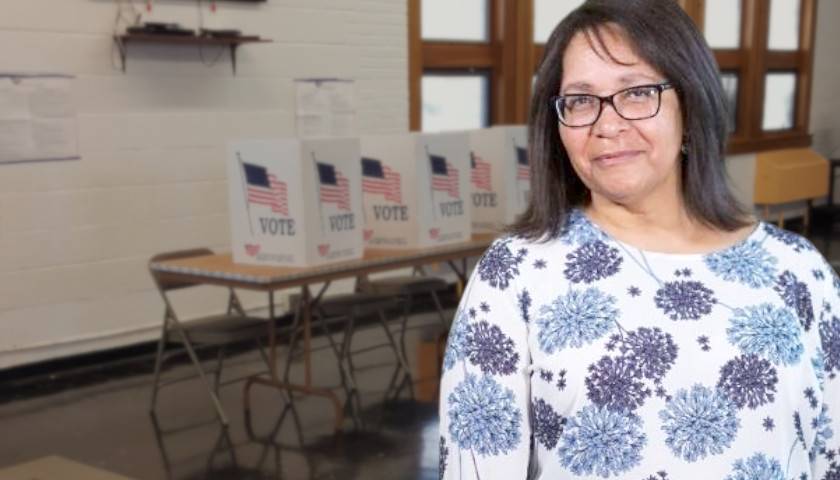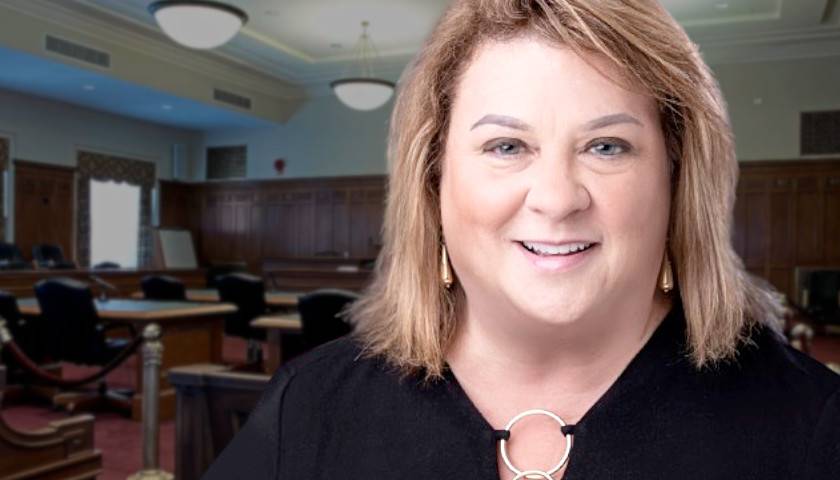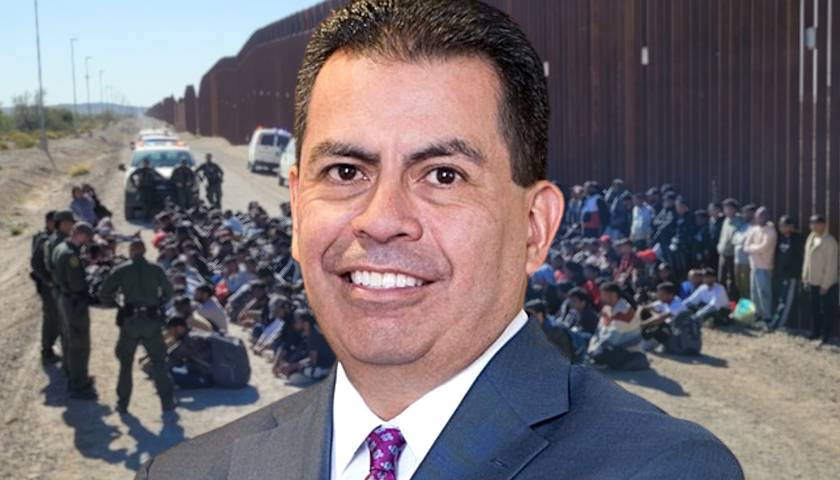by Natalia Mittelstadt
The Public Interest Legal Foundation (PILF) filed a complaint on Monday against the Green Bay city clerk to the Wisconsin Elections Commission for not following state law to verify same-day voter registrations. Same-day voter registration, which is when people can register to vote and cast a ballot at the same time, is a practice that both PILF and the Honest Elections Project warn may let illegal votes be counted before a voter’s registration can be verified.
PILF reported the Green Bay city clerk to the Wisconsin Elections Commission for failing to follow state law on same-day voter registration, an election practice that election integrity advocates warn can allow illegal votes to be counted.
PILF President J. Christian Adams said on the “Just the News, No Noise” TV show on Wednesday that “the problem with same-day registration of course is you don’t know, in fact, if they’re eligible to vote. Well, that’s what Wisconsin law does, is they require a verification mailing, and if the mailing bounces, the DA is supposed to investigate and possibly prosecute.”
Adams added that across Wisconsin, “they’re not following the law. And that Green Bay’s clerk is not doing what the statute says she’s supposed to do. So the Public Interest Legal Foundation is representing Wisconsin citizens to try to get this fix and get her to follow the law that’s meant to make our elections more secure.”
PILF filed a complaint to the Wisconsin Elections Commission on Monday, claiming that Green Bay City Clerk Celestine Jeffreys (pictured above) “has only inactivated two registrants and referred one individual to the District Attorney,” despite receiving 270 undeliverable postcards from Election Day Registrations since the 2020 primary election.
“The city of Green Bay is ignoring Wisconsin law by not investigating whether registrants are using improper addresses on Election Day,” Adams said in a statement on Monday. “Election Day registration must have safeguards that ensure eligibility to vote. In Wisconsin, that only happens after their vote has already been counted, if it happens at all. This complaint seeks to require the law to be followed so that any bad actor knows there will be consequences for abusing the Election Day voter registration process.”
The Green Bay city clerk did not immediately respond to a request for comment.
Lauren Bowman Bis, Director of Communications for PILF, told Just the News on Thursday, “Same-day voter registration allows people to cast votes with verification of their eligibility after an election. This post-verification system makes same-day registration vulnerable to being used to cast fraudulent votes. Elections work best when voter registration eligibility is determined before an election.”
Elsewhere in Wisconsin, “Milwaukee County District Attorney John Chisholm has refused to review at least 354 referrals for potentially unlawful same-day day voter registrations” from both the 2020 and 2023 general elections, according to PILF.
The Milwaukee Election Commission showed PILF the box with the referrals that the district attorney didn’t pick up. According to PILF’s December report, “These referrals represent 354 potential illegal votes that cannot be reversed.”
The Milwaukee County District Attorney’s office didn’t immediately respond to a request for comment.
According to the National Conference of State Legislatures, 22 states and Washington, D.C., have same-day voter registration. However, two of those states – Montana and North Carolina – only allow same-day registration during early voting, not on Election Day.
Additionally, Alaska and Rhode Island only allow same-day registration for president and vice president. For Rhode Island, same-day registration occurs at the Board of Canvassers, not a polling place.
In the rest of the states, most require voters to register at a deadline before Election Day.
Honest Elections Project Action Executive Director Jason Snead told Just the News on Thursday that same-day registration is problematic for both election integrity and election administration.
Snead explained that when Michigan began using same-day registration in 2020, the state saw long lines at polling places “because instead of just processing voters and votes,” poll workers now had to also get voters registered, which caused “a bottleneck and put pressure on administration staff.”
He said that a “huge problem with same-day registration is there’s no time for a registration to be verified before a person casts a ballot.” Thus, unless the same-day registration system requires voters to cast provisional ballots that are “only counted once the registration is verified,” which usually doesn’t occur, then the ballot “can’t be removed” from the total count “if there’s a problem with the registration after the fact,” Snead added.
According to a report by the Honest Elections Project on election reforms for states to follow, voter registration “should be suspended 30 days before an election to permit the validation of new voter registrations and the timely processing of all registrations received.”
Snead said that the 30-day cutoff is “not only to vet registrations, but to have an accurate sense of how many voters there are in” a jurisdiction, which is “important for planning purposes,” such as determining how many ballots are needed for each precinct on Election Day and preparing for early and mail-in voting.
“By pushing registration all the way up to Election Day and then doing same-day and Election Day registration, it’s making it considerably more difficult for officials to execute elections,” he explained.
Snead also noted that voter turnout increases not when states implement same-day registration and automatic mail-in voting, but when laws are put into place “to protect the integrity” of the election
process and show voters that their concerns “are taken seriously.”
– – –
Natalia Mittelstadt graduated from Regent University with Bachelor of Arts degrees in Communication Studies and Government.
Background Photo “Voting Booths” by Tim Evanson. CC BY-SA 2.0.




